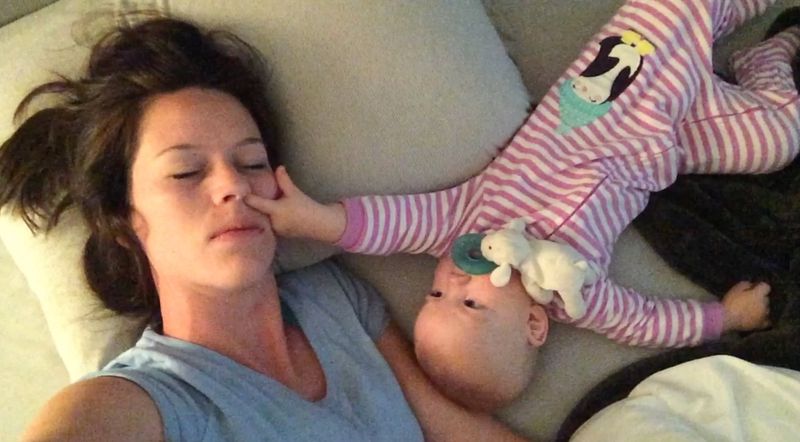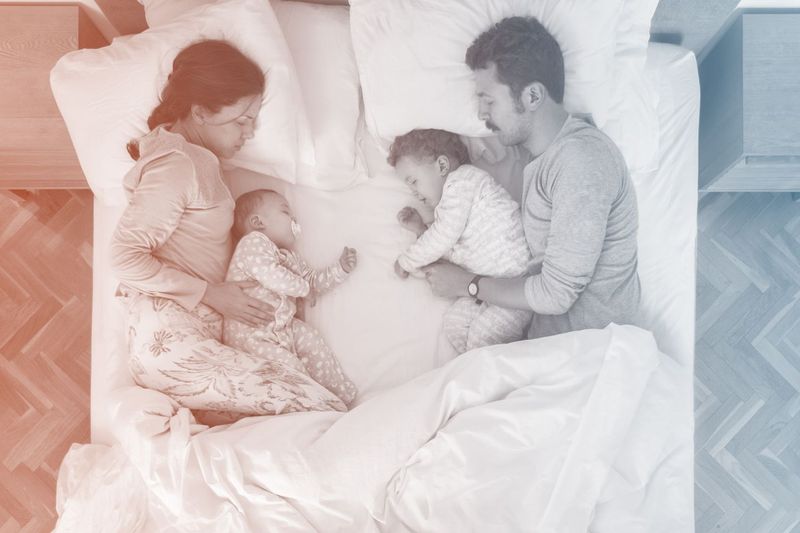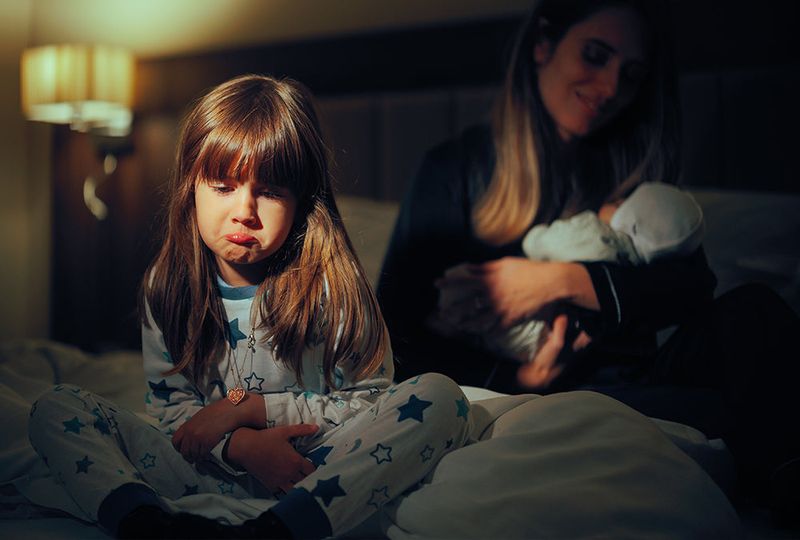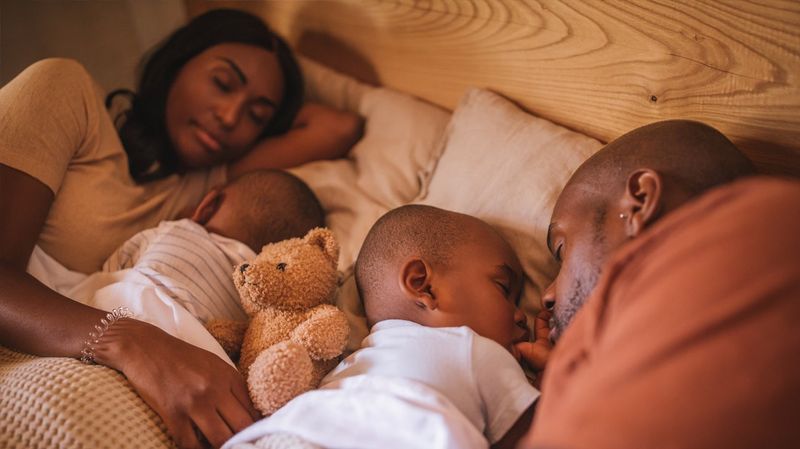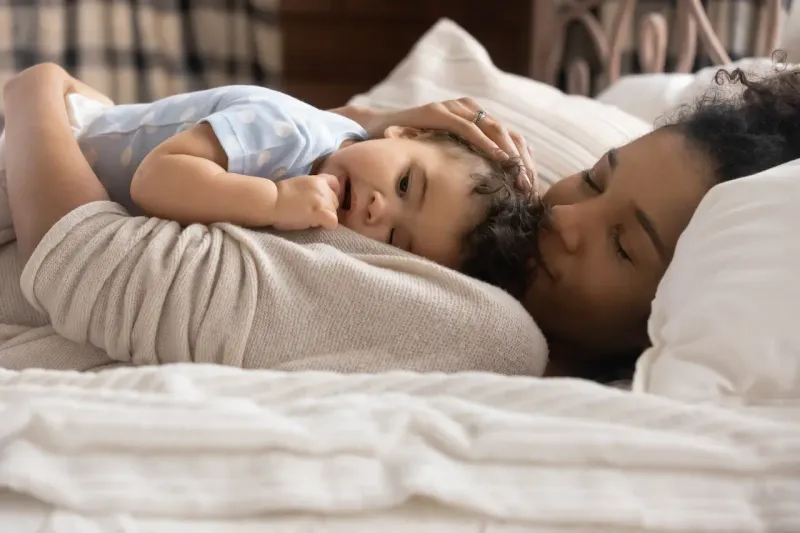Let’s be real: if you’re reading this, you’ve probably stared at the ceiling at 2AM, wondering if you’re helping your kid—or holding them back. You’re not alone. Parents everywhere wrestle with the same question: When is co-sleeping no longer the loving thing, but the thing that’s slowing everyone down?
There’s no single answer. But there are signs—honest, sometimes uncomfortable, always useful. I’ve pulled together 15 of the realest, most expert-backed signals it might be time to help your child (and yourself) reclaim some independence at bedtime.
Not to shame you, but to help you see what’s actually happening, underneath the surface. Because the truth is, this isn’t just about sleep. It’s about growing up—yours and theirs. Ready for some straight talk? Here’s what to look for, from the obvious to the stuff we pretend not to notice.
1. Your Child Asks for Their Own Bed
It’s a strange moment when your child looks up at you and says, “Can I sleep in my own bed tonight?” You might feel a sting—a mix of pride and loss. But this is the milestone most of us wait for, even when we secretly wish it didn’t come so soon.
They’ve learned that sleep can be safe even an arm’s length away from you. Their confidence didn’t happen overnight. Remember when they couldn’t fall asleep without your hand on their back? This is the next chapter, and it’s honest-to-goodness progress.
It’s proof that you’ve helped them feel secure enough to try something new. That’s growth, for both of you. Some parents fight this moment, but holding on too tightly can make it harder. Let them lead when they’re ready. Respect their bravery—even when it makes you ache.
2. You Dread Bedtime (More Than Usual)
Here’s a raw confession: some nights, bedtime feels like a trap. If you’re finding yourself counting down the minutes until your kid finally falls asleep—just so you can sneak away and breathe—something’s off.
When co-sleeping turns from comfort to chore, your resentment can seep in. You might snap at your partner, or fantasize about sleeping diagonally across a bed without a tiny foot in your ribs. That’s not selfish. That’s survival. Over time, frustration builds up like laundry you keep meaning to fold.
Listen to your own exhaustion. If bedtime feels heavier now than it did a year ago, maybe it’s not working anymore. You deserve rest, too. Your needs matter, and sometimes that means rethinking old routines. Your peace of mind isn’t a luxury; it’s a necessity for everyone under your roof.
3. Your Child’s Sleep Gets Worse, Not Better
You know that moment when you realize your child actually sleeps worse with you? Maybe they wake more, or can’t seem to settle. It’s like their sleep got stuck in second gear, and nobody’s getting anywhere.
Some kids grow out of co-sleeping peacefully. Others get clingier, waking up more often for comfort they don’t actually need. You might notice new bedtime battles, or nightmares that never bothered them before. Their bodies are growing, and so are their brains.
When your child’s sleep quality goes downhill—even with you right there—it’s a sign something needs to change. You’re not failing them. At times, loving them means stepping back and letting them struggle a little, so they can figure out their own ways to feel safe at night. Hard, but true.
4. You Can’t Remember the Last Time You Slept Well
Nobody tells you how much sleep you’re going to lose—until you’re down to scraps yourself. If you wake up groggy, body aching, and can’t recall the last time you dreamt, that’s a flag.
Chronic tiredness isn’t a badge of honor. Over time, lack of quality sleep messes with your mood, your memory, even your hormones. Your patience thins out. The small stuff feels bigger. It’s not just about being tired—it’s about being worn down, inside and out.
You need rest to show up as the parent you want to be. If co-sleeping costs you real sleep, it’s a cost worth reconsidering. This isn’t just your kid’s childhood; it’s your life, too. Tiredness steals more than energy. Don’t let it.
5. Bedtime Becomes an Endless Negotiation
Remember when bedtime was two stories and a kiss goodnight? When every night turns into a drawn-out debate—one more hug, one more sip of water, one more song—co-sleeping may be dragging you into a power struggle.
These negotiations aren’t always cute. Sometimes, they’re exhausting. Your child’s delay tactics become your nightly battle. It’s not about the water or the story. It’s about control. They know you’re soft at bedtime, so they push.
If getting your kid to settle down feels like haggling at a flea market, ask yourself: who’s running the show? Kids need boundaries. When bedtime turns into a standoff, it’s not fair to either of you. Structure helps everyone sleep better. It’s okay to take back the lead.
6. Your Relationship Takes the Backseat
Let’s cut to it: co-sleeping isn’t just about you and your kid. If your partner’s gone from teammate to roommate, you’re not alone. Sharing your bed with a child changes everything—intimacy, conversation, even the way you say goodnight.
The bed becomes a battleground of elbows and missed opportunities for grown-up connection. Conversations happen in whispers, if at all. The romance you promised you’d never lose starts to fade, traded for silence and routine.
When you start missing your partner more than you miss sleep, pay attention. Relationships need space—literally and emotionally. Making room for your child shouldn’t mean shutting out your partner. Love deserves its own corner of the universe, too.
7. Siblings Feel Left Out or Jealous
Family dynamics aren’t static. Maybe your youngest sleeps beside you, while your oldest watches from the doorway, wondering why they aren’t invited. Sibling rivalry isn’t just about toys—it’s about access to you.
When one child gets nightly closeness, the other may feel exiled. Jealousy can bubble up. Resentment simmers beneath small, everyday moments—sharing breakfast, picking seats at dinner. Kids notice more than we realize.
If you spot sibling tension, it’s not a sign you failed. But it may signal that it’s time to even the playing field. Kids crave fairness and security. In certain moments, the best gift you can give is a bedtime routine that belongs to everyone.
8. You’ve Outgrown the Bed (Literally)
There’s a practical side to this: beds don’t magically expand. Maybe your child’s feet now reach halfway down the mattress, or there’s always an elbow in your ear. You wake up sore. Someone ends up on the floor more mornings than not.
Physical discomfort isn’t trivial. When sleep turns into a nightly game of Tetris, the arrangement has probably outlived its usefulness. Nobody gets real rest when the bed’s too crowded.
Bodies grow. Families change. If you’re all squished and cranky, it may be time to claim your own corners again. Space matters—for sleep, for sanity, for everyone’s comfort. Don’t ignore the obvious.
9. You’re Avoiding the Conversation
From time to time, we know what needs to change but can’t say it out loud. You dodge the topic with your partner, or make excuses to friends. Maybe you tell yourself, “We’ll figure it out later,” but later never comes.
Avoidance is its own answer. If you’re nervous to bring up the subject, chances are, it’s already on your mind. Silence builds tension—inside you, inside your family.
Facing the conversation is hard. But sidestepping it only makes the eventual shift messier. Trust your instincts and stop hiding from the truth. Perhaps, it’s time to talk.
10. Night Wakings Become More Frequent
There’s always a reason for one more wakeup—bad dreams, bathroom trips, mysterious thumps in the night. But if these interruptions happen more now than ever, something’s shifted.
Kids who wake up multiple times, even with you nearby, might be stuck in a pattern that co-sleeping makes worse. Their sleep cycles get disrupted. Yours do, too.
When the nights feel fractured—nobody gets a full block of rest—it’s not working. Sleep needs consistency. Too many wakeups mean the routine isn’t serving its purpose anymore. In this moments, breaking the habit is the kindest move for everyone.
11. You Feel Stuck or Guilty
Guilt is a familiar shadow for parents. You wonder if you’re pushing too soon, or not soon enough. You hear other parents brag about independent sleepers and feel like you missed the memo.
Feeling stuck isn’t a personal failure. It’s a signal you’re at a crossroads. We cling to old routines because we’re afraid of regret, or of hurting our child’s feelings. But real connection isn’t about always saying yes—it’s about honesty.
If guilt is running the show, it’s time to check in with your own needs, too. Change is hard. But staying stuck is harder, in the long run. Give yourself grace to move forward, imperfectly.
12. Your Child Is Ready for School
There’s something profound about a child taking their first steps toward independence—like the first day of school. This might be time for another leap.
School brings new routines: group activities, following rules, making friends. But sleeping solo is its own rite of passage. Being okay without you right there builds confidence that carries through the school day and beyond.
In case school readiness is on the horizon, consider helping your child build bedtime independence, too. It’s a skill with ripple effects across their whole life. The best preparation happens at home, after the lights go out.
13. You’re Craving Personal Space
Some mornings, you wake up and crave a room that’s just yours. Maybe you want to read at midnight, or enjoy your own playlist, or just…breathe.
There’s nothing selfish about needing space. Parents pour out so much—time, energy, physical presence. But if you’re feeling touched-out, or like you’re losing your sense of self, pay attention. Wanting room to be alone is healthy.
Personal space isn’t a luxury for parents. It’s part of staying grounded and sane. Assuming co-sleeping means you never get a moment to yourself, listen to that longing. You’re allowed to want more—for you and your child.
14. You Catch Yourself Comparing to Other Families
You promised yourself you wouldn’t compare, but then you see your friend’s kid sleeping solo, and you start to question everything. Maybe you feel envy or shame. Maybe you tell yourself their situation is just different.
Comparison is tricky. It can nudge us toward growth, or it can make us feel stuck. Whenever you’re consistently measuring your family against others, it may be a sign that you’re not satisfied with your own setup.
Looking outside yourself for validation usually means you’re ready for something to change. You don’t have to copy anyone else’s blueprint. But noticing the urge to compare it’s the first step toward change.
15. The Family Doctor Suggests a Change
Doctors rarely sugarcoat things when it comes to your kid’s well-being. If your pediatrician raises concerns about co-sleeping—whether it’s about sleep quality, emotional development, or family stress—it’s worth listening.
Perhaps, hearing it from a professional makes it stick. You might notice the doctor’s advice lines up with what your gut already whispered. Or maybe it’s the wake-up call you didn’t want, but needed.
Medical guidance isn’t just about rules. It’s about supporting your family’s health—physical and emotional. If your family doctor presses pause on co-sleeping, take it as a moment to reflect. Professionals see the patterns we sometimes miss.



